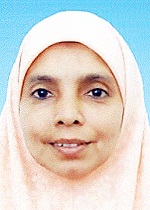Modeling Impacts of Climate Change on Bread Wheat (Triticum Aestivum l.) Productivity in Bale Highlands, South Eastern Ethiopia: Case of Robe Area
Keywords:
Abstract
Wheat is one of the food security crops in Ethiopia which is critically sensitive to the impacts of climate change. However, the factors of climate change are very local; hence a local-level and crop-specific understanding of the impact is extremely important. With this understanding, a study is conducted at Sinana district in Bale Highlands to model the impacts of climate change on bread wheat production and analysis under future climate scenarios. Historical climate data (1984-2016), projected climate data downscaled using the ensemble of all GCMs, were analyzed to understand the local level climate change. The future climate is analyzed regarding changes in annual rainfall, seasonal rainfall, and monthly rainfall statistics using INSTAT v3.37 software analytical tools respectively. Observed agronomic and soil data were used to calibrate and validate the Crop model of the Decision Support for Agrotechnology Transfer (DSSAT) model. The model was used to simulate the impact of future climate changes and variability in bread wheat yield of Madda walabu and Sofumer varieties at Sinana district in Bale highlands. The results revealed that climate change caused variability in bread wheat productivity in the Sinana district within different time slices. There is a negative impact simulated at the Robe area except in the 2080s under RCP4.5 and 2050s and 2080s under RCP8.5 scenarios. Madda walabu yield is simulated to decrease up to -21.4% at Robe by 2050s under the RCP4.5 scenario relative to the baseline due to climate change impacts. For Sofumer, an increase in grain yield from the baseline condition was 7.0 % and 11.6 % by the near century (2030s) under both RCP4.5 and RCP8.5 scenarios respectively. Also, much yield reduction is experienced the 2050’s and 2080’s by 15.6 % and 27.0 % under RCP4.5. The decrease was expected by 21.9 % and 23.9 % in 2050 and 2080’s under RCP8.5 respectively. Therefore; climate change had a severe impact that justifies the need for a site-specific study. Therefore, future agricultural practices should benefit from agro-weather advisory services for farming decisions in the study of the area.
References
Beddington, J., Mega, C., Adrian, F., Marion, G., Molly, J., Lin, E., Tekalign, M., Nguyen, V.B., Carlos, A. N., Robert, S., Rita, S. and Judi, W. 2012. Achieving food security in the face of climate change, Final report from the Commission on Sustainable Agriculture and Climate Change. p98.
Bekele Hundie, Verkuiji, H., Mawangi, W., and Tanner, D.G. 2000. Adaptation of improved wheat technologies in Adaba and Dodola Woredas of the Bale highlands of Ethiopia. CIMMYT/EARO, Addis Ababa, Ethiopia.
Bergh, K., A. Chew, M. K. Gugerty, and C. L. Anderson. 2012. “Wheat Value Chain: Ethiopia.” EPAR Brief No. 204. Seattle, WA, US: Evans School of Public Affairs
CSA (Central Statistical Agency). 2013. Agricultural survey sample. Report on area and production of major crops. Statistical Bulletin No 532. Addis Ababa, Ethiopia.
Cubash, U., Meehl, G.A., Boer, G.J., Stouffer, R.J., Dix, M., Noda, A., Senior, C.A., Raper, S. and Yap, K.S. 2001. Projections of future climate change. In climate change 2001: The scientific basis. Contribution of working group I to the Third assessment report of the Intergovernmental Panel on Climate Change. Cambridge University Press, Cambridge, UK, and NY, USA, p881.
De Brauw, A. and Minot, N., 2016. The Impact of the Use of New Technologies on Farmers’ Wheat Yield in Ethiopia: Evidence from a Randomized Control Trial (No. 235651). Agricultural and Applied Economics Association.
Esayas, A and Ali, A. 2006. Soils of sinana agricultural research center the federal democratic republic of Ethiopia, Ethiopian institute of agricultural research National soil research center, Soil Survey and Land Evaluation Section. (Esayas and Ali, 2006)
Harb OM, Abd El-Hay GH, Hager MA and Abou El-Enin MM. 2016. Calibration and Validation of DSSAT V.4.6.1, CERES and CROPGRO Models for Simulating No-Tillage in Central Delta, Egypt; Agronomy Department, Faculty of Agriculture, Al-Azhar University, Cairo, Egypt http://dx.doi.org/10.4172/2168-9881.1000143.
Hunt L.A., S. Pararajasingham, J.W. Jones, G. Hoogenboom, D.T. Imamura and R.M. Ogoshi. 1993. GENCALC: Software to facilitate the use of crop models for analyzing field experiments. Agron. J., 85: 1090-1094.
IPCC (Intergovernmental Panel on Climate Change). 2014a. The IPCC's Fifth Assessment report. What's in it for Africa. p59.
Jones, J.W., Hoogenboom, G., Porter, C.H., Boote, K.J., Batchelor,
W.D., Hunt, L.A., Wilkens, P.W., Singh, U., Gijsman, A.J. and Ritchie,
J.T. 2003. The DSSAT cropping system model. International Journal of Science. Vol. 3 (5). pp: 11-31.
Joshi, N. P., Maharjan, K. L., and Luni, P. 2011. Effect of climate variables on the yield of major food crops in Nepal – a time-series analysis,Graduate school for international development and cooperation, Hiroshima University, Hiroshima.
Liu, Z. J., Hubbard, K. G., Lin, X. M., and Yang, X. G. 2013. Negative effects of climate warming on maize yield are reversed by the changing of sowing date and cultivar selection in Northeast China, Global Change Biol., 19, 3481–3492, 2013.
Mishra, A., R. Singh, N.S. Raghuwanshi, C. Chatterjee, J. Froebrich. 2013. Spatial variability of climate change impacts on the yield of rice and wheat in the Indian Ganga Basin. The Science of the Total Environment, 468-9: s123-s138. DIO:org/10.1016/j.scitotenv.2013.05.080.
Muhe, K and Assefa, A. 2011. Genotypes X environment interaction in bread wheat (Triticum aestivum L.) cultivar development in Ethiopia International Research Journal of Plant Science (ISSN: 2141 5447) Vol. 2(10).
Ritchie, J.T., U. Singh, D. Godwin, W.T. Bowen. 1998. Cereal growth,
development and yield. In: Tsuji, G.Y., Hoogenboom, G., Thornton, P.K. (Eds.), Understanding Options for Agricultural Production
SARC (Sinana Agricultural Research Center). 2003. Plant Pathology Progress report for the period of, 2003. Sinana. 40 PP
Travis, L. and Daniel, S. 2010. Agricultural technologies for climate change mitigation and adaptation in developing countries: Policy Options for Innovation and Technology Diffusion. ICTSD (International Centre for Trade and Sustainable Development)-IPC Platform on climate change, Agriculture, and trade. Issue Brief No. 6. p133.
Valizadeh, J., Ziaei, S.M. and Mazloumzadeh, S.M. 2013. Assessing climate change impacts on wheat production (a case study). Journal of the Saudi Society of Agricultural Sciences, Vol. 13
Wang, M., Y. Li, W. Ye, J.F. Bornman, X. Yan. 2011. Effects of climate change on maize production and potential adaptation measures: a case study in Jilin Province, China. Climate Research, 46: 223-242. DOI: 10.3354/cr00986
Wilby, R.L., S.P. Charles, E. Zorita, B. Timbal, P. Whetton, L.O. Mearns. 2004. Guidelines for the use of climate scenarios developed from the statistical downscaling model. IPCC task group on data and scenario support for impact and climate analysis (TGICA) no2_v1_09_2004.pdf.
World Bank. 2012. Turn down the Heat, why a 4 .C warmer world must be avoided. A report for the World Bank by the Potsdam Institute for Climate Impact Research and World scientists’ warning to Humanity. Washington, DC: World Bank.
Downloads
Published
How to Cite
Issue
Section
License
Copyright (c) 2020 Apex Journal of Advanced Sciences & Engineering

This work is licensed under a Creative Commons Attribution-NonCommercial 4.0 International License.






